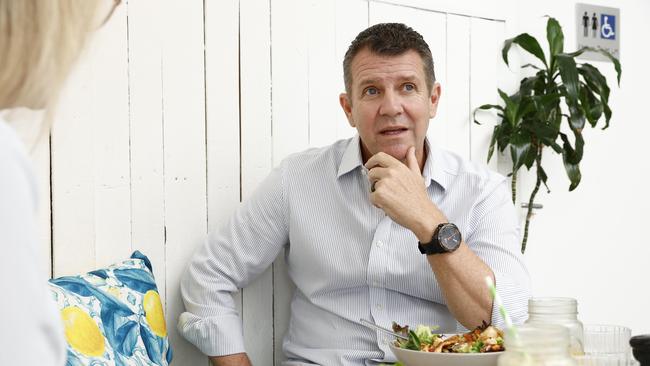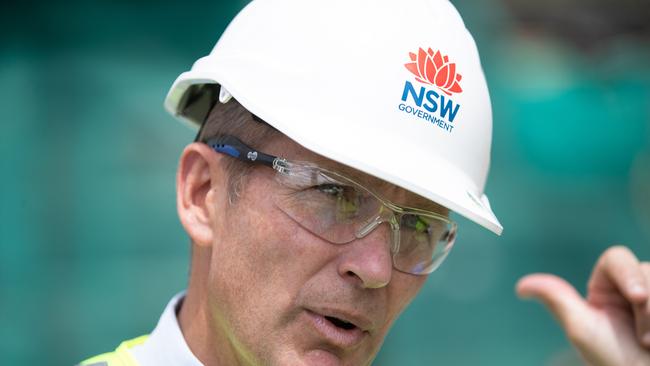Plenty of open spaces as Liberals try to bring the band back together
The weekend’s electoral bloodbath has left the federal parliamentary Liberal Party so depleted that ex-politicians such as Mike Baird and Josh Frydenberg could be convinced to come back for another crack, writes James O’Doherty.
Opinion
Don't miss out on the headlines from Opinion. Followed categories will be added to My News.
Liberals are talking about getting the band back together.
They’re not on a mission from God, like John Belushi and Dan Akroyd in the Blues Brothers, but members of the Liberal Party’s old guard do believe the party they once served needs redemption.
In the wake of Peter Dutton’s drubbing on Saturday, group chats started pinging with talk of wooing former stars back into the fold.
As the thinking goes, the weekend’s electoral bloodbath has left the federal parliamentary party so depleted that people like Mike Baird and Josh Frydenberg could finally be convinced to come back for another crack.
Gladys Berejiklian is one name that keeps coming up, but Liberals know that dream is unattainable; Berejiklian is out for good.
There is hope that Baird, however, could finally be convinced to run against Zali Steggall, in a move which could eventually pave the way to the leadership.

The former Premier has been courted multiple times since he quit politics, but has always knocked back pleas for a return.
“The timing would be ideal for Mike,” one Liberal says.

“He could get in there, spend a term in opposition, and be Prime Minister at 62 (years old).”
Another said the “experienced, charismatic and liked” Baird would be able to “attract and retain talented people” in a way Dutton could not.
The former Premier now lives and works in Melbourne - something, backers say, only broadens his national appeal.
Former state ministers Rob Stokes, David Elliott and Victor Dominello are also being spoken about as state figures who could bring the Liberal Party back from the brink, if they could be convinced.
South Australian Nicole Flint (who represented Boothby) is another, as is Bridget Archer - who was ousted from her Tasmanian seat in Saturday’s bloodbath.
Prominent former Liberals are definitely talking, and considering whether there is a “contribution” they can make to the party.
That could either as elected MPs or in a role guiding the party outside the parliament.
“We need a complete reset,” one says.

Bemoaning the catastrophic campaign, Liberals believe Dutton failed to prosecute a proper conservative campaign on tax, defence, and government spending.
“A conservative party that promises to spend just as much as Labor is not a conservative government, its just about culture wars,” says one.
The issue plaguing Liberals that emerged on Saturday night has become even more pressing since the dust settled: what do they represent?
Some Liberals think the party has become too right wing.
Others say the Dutton campaign was not right-wing enough.
The existential question threatening to tear the Liberal party apart was laid bare in state parliament on Wednesday night, when right-wing warrior Anthony Roberts sided with the Greens in a phenomenon he said had “never happened before”.
The conservative crusader was proposing amendments to a bill designed to improve local spaces by taxing small businesses more.
Roberts tried to change the bill to allow businesses to effectively opt out of the levies which would pay for improvements like public art or “district branding”.
Roberts had the support of fellow conservative Ray Williams, the Greens, and a few independents, but the amendment went down in a flaming heap.
Joking in the chamber, Roberts said it was an unusual feeling for him to align himself with those on the far left.
Someone quipped that he could soon join the Liberals’ moderate faction.
“I’ll join the Greens before that, they’re further to the right,” Roberts shot back.
The Community Improvement Districts Bill, he said, would impose new taxes on local businesses to pay for things they do not want.
“This is, in fact, conscription. It is not cooperation … all this is going to do is shut down more businesses.”
Opposition Leader Mark Speakman does not agree; the Coalition voted for the bill. He argues that the “vast majority” of Liberals and Nationals sided with business lobby groups in supporting the bill.
Speakman’s future as leader rests on whether he can bring the party together to form a consistent message, at a time when morale is at an all-time low.
The Liberal leader on Sunday declared that if the party is to have any hopes of winning the next state election, it must shift to the “sensible centre”.
“Our values of aspiration, opportunity, enterprise, hard work are timeless, and we will anchor our policies on those,” he said on Monday.
His MPs are now asking what the “sensible centre” means.
Those MPs will on Tuesday be briefed by Liberal Party State Director Chris Stone on where the campaign all went wrong.
The usual party room meeting has been brought forward by an hour to allow for a frank discussion of the result and what it means for the NSW party, which is heading into an election in less than two years.
One thing is certain: Speakman has no hope if he cannot get everyone singing from the same song sheet.





